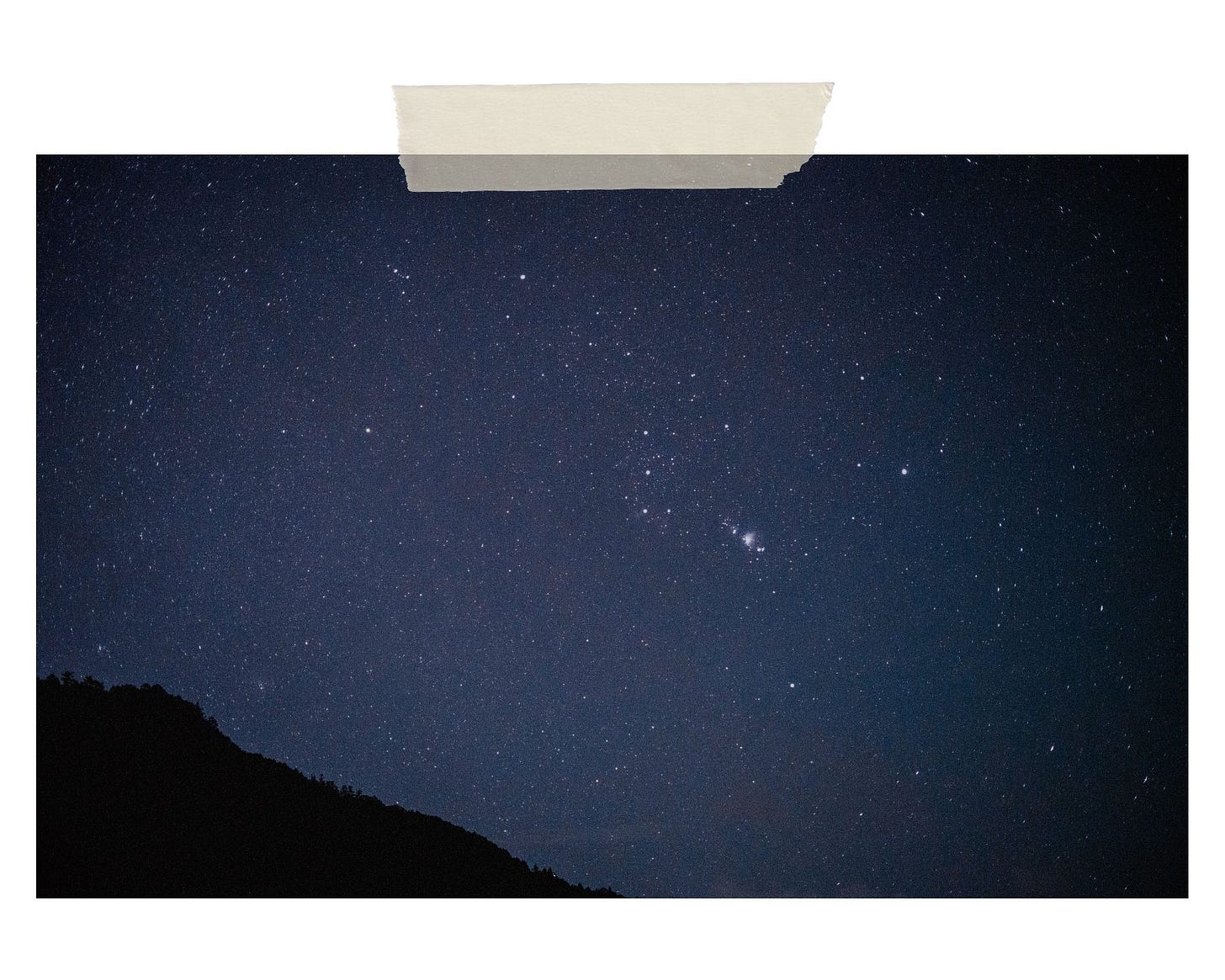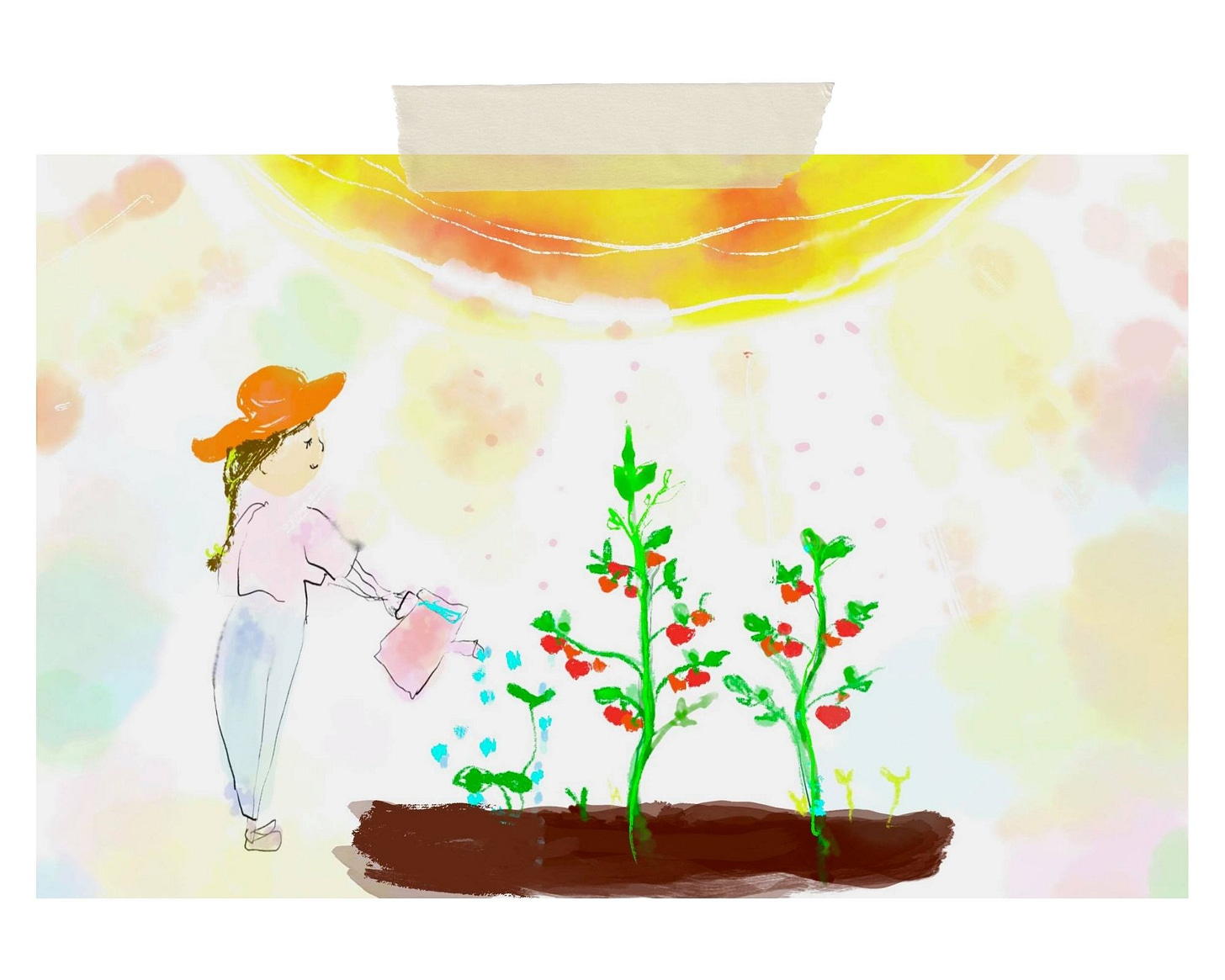Happy Sunday afternoon or early Monday morning,
Lately, I’ve been thinking a lot about time ‘time’. ‘Time’, depending on how you conceptualize it, can either be an entirely basic or deeply abstract concept—it can be as black & white as a minute and hour hand spinning around a watch face, time being measurable and specific, or it can be as abstract as trying to understand it from the standpoint of meaningful and purposeful.
I haven’t been thinking about time in an effort to define ‘what is time?’, rather, I’m thinking about time from the point of view of making choices about how to use it.
Since January (new years resolution yeeaah!) I’ve been more intentional about my reading and I recently finished two books: Four Thousand Weeks by Oliver Burkeman and The Midnight Library by Matt Haig. The former is the author’s attempt to debunk the alluring “trap” of time management. Burkeman argues that wanting to be more efficient is a misguided way to think about time. He draws on different philosophers to try to explain to readers that when you stop trying to get an impossible amount of things done (in pursuit of accomplishments), you can start spending the short amount of time you do have to pursue a few things that do matter. It’s a very simple, but refreshing way to think about time. Here’s a quote that sums it up well:
“Once you stop believing that it might somehow be possible to avoid hard choices about time, it gets easier to make better ones. You begin to grasp that when there’s too much to do, and there always will be, the only route to psychological freedom is to let go of the limit-denying fantasy of getting it all done and instead to focus on doing a few things that count.”
― Oliver Burkeman, Four Thousand Weeks
The second book, The Midnight Library by Matt Haig, is a book about regrets. The main character has a chance to relive her life by undoing some of her regrets. The premise is simple, but the author offers a touching narrative that speaks of the joys to be found in living, despite all its ongoing changes, complexities, and a simple but profound understanding: no life is perfect.
All of this to say, I hope you don’t feel time ‘slipping’ because it’s not. Time is simply moving and you are too, but you don’t need to feel like you’re falling behind or chasing a point in time where all the things you want to do will be accomplished. Like time, we’re finite, and acceptance of this truth is freeing—allowing us to direct our energy toward just a few things that matter. Don’t spread yourself too thin in an attempt to do everything (it’s not possible anyway).
Speaking of intentionally focusing time and energy on meaningful things, I’m soon deep-diving into two projects:
1. Farming School
I’ve signed up for part-time farming school! Last year I attempted to create a small garden, which yielded a handful of tomatoes, some funny-shaped, very curly cucumbers, a beautiful bed of herbs, and some odd-looking squash.
If you want to see humility in its purest form, take a city girl and get her to attempt self-sufficient living in the countryside. I failed at almost everything I attempted to do last year and it was hilarious, wonderful, and humbling.
This year, also in line with my intention to harmonize theory and practice, I’ve enrolled on a year-long, part-time, farming school consisting of class and time to practice in a shared garden. Classes will only be once a month in a town about 2 hours away so I plan to supplement my classes by spending lots of time with local farmers in Kamikatsu.
2. Linda and I are starting a podcast
Okay, this is going to be a wild ride, to which I have no idea where we are exactly headed. Linda and I, between the two of us and also with others, often talk about our shortcomings with living “sustainably” (emphasis on the air quotes, because what does that word even mean….). Since we’re living in a town that became very famous for recycling (a garbage system referred to as ‘Zero Waste’), people from outside of Kamikatsu often turn to us for advice or insight. The truth is, we’re far from perfect and also trying to figure out this “sustainability” for ourselves.
With encouragement from a handful of people around us, we’re attempting to start a podcast sharing our imperfect attempts at more sustainable living, as well as sharing stories in and about Kamikatsu. Life in the countryside is anything from boring, despite whatever rep it may carry elsewhere. Between the two of us, we have our fair share of funny stories (a bit of gossip) and very human experiences trying to make sense of life in rural Japan.
Stay tuned for updates on both!!!
Valentine’s Day doesn’t mean much to me personally, but I hope this day is a reminder of the compassion we can extend to others—be kind, always.
With love,
Kana







